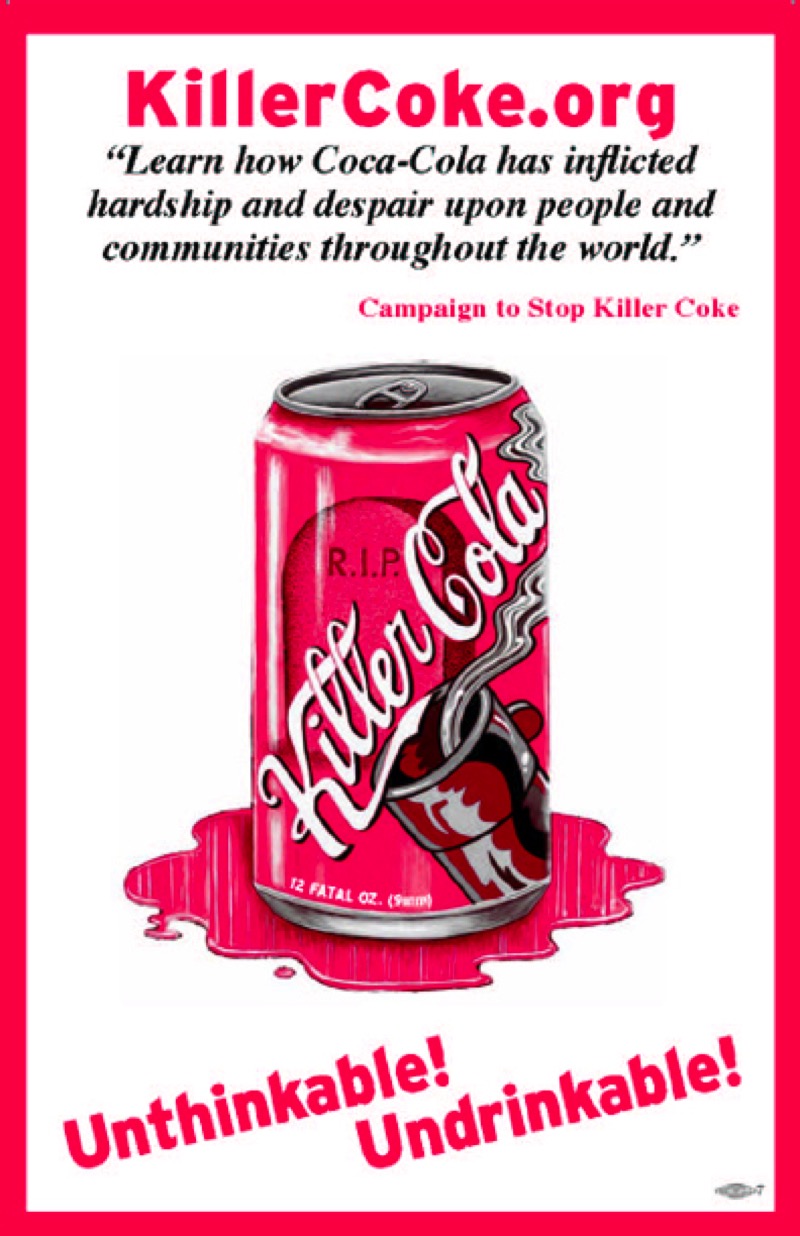A federal rule banning fake online reviews is now in effect.
The Federal Trade Commission issued the rulein August banning the sale or purchase of online reviews. The rule, which went into effect Monday, allows the agency to seek civil penalties against those who knowingly violate it.
“Fake reviews not only waste people’s time and money, but also pollute the marketplace and divert business away from honest competitors,” FTC Chair Lina Khan said about the rule in August. She added that the rule will “protect Americans from getting cheated, put businesses that unlawfully game the system on notice, and promote markets that are fair, honest, and competitive.”
allows the agency to seek civil penalties against those who knowingly violate it.
I hate that wording. Ignorance of the law isn’t a defense, unless you’re a corporation, apparently.
It also looks like this doesn’t address the practice of offering incentive for actual purchasers to leave positive reviews.
That’s not what knowingly means in this context. Knowingly refers to the level of intent required to pursue charges, not whether they knew there was a law against it.
In this case it requires the government to show that the person intended to leave a review and/or testimonials that misrepresent that they are by someone who does not exist.
Anyways my brother works for the FTC. With the current funding, they take thousands of complaints before they even look into something. It’s effectively useless as only the most publicised cases get any enforcement and the fines are tiny. And he says it was twice as bad before Biden.
The wording is a bit ambiguous but I’d read that as “intentionally” rather than “with knowledge they’re violating the law”… it definitely could have used a good copy editor though.
They’ll just outsource it to foreign “reputation management” firms and pretend they had no idea what was happening, like how Coke got away with murdering union members in a foreign country.
Holy shit, killercoke.org goes fucking hard
That’s not true, ignorance of the law is also a valid defense for police officers violating people’s rights 🙄
It’s more than a defense, it’s actually a benefit for police. Attempting to enforce rules that don’t exist still count as valid pretext if they find evidence of actual crimes.
It’s also pretty much impossible to prove, which of course is the point. The government exists to protect corporations
Awesome, now make them criminally liable.
Corporations are people, no? Throw them in prison.
IMO, corporate punishments should work like that: steal a little from someone? Lose 90 days of profit. Steal a lot? Lose a couple years of profits. Kill someone? Lose 20 years of profits
Jailing CEOs works better only because money is easy to manipulate. Loosing 20 years of profit just means bankruptcy. Make a new name new company buys all assets of bankrupt at fault company and nothing but the name changes. I’m with the idea that if companies have personhood than the person in charge is responsible for harm that personhood does.
I wonder if having to face consequences for their actions would change how CEOs behave 🤔
The CEO would just be a fall guy, and the decision-making would go to someone else.
I mean given the depths they’ll go through to dodge taxes I think they absolutely would change behavior.
No. That’s not what that means. Profit by definition is the excess revenue that isn’t required to run the business.
Cool, so just do stock buy backs to eat the profits while rewarding the executive suite
So again. Profit is the excess revenue (this time in bold and italicized) that isn’t needed to run the business. Believe it or not stock buy backs aren’t required to run a business. Weird huh?
Compensating your employees is an expense needed to run the business. Those buybacks is just the cost of doing business.
They tried that when McDonald’s served coffee that gave an old woman 3rd degree burns on her genitals.
A single days profits from coffee.
McDonald’s fought that in court, and spent many thousands of dollars on a PR campaign to vilify the woman they burned.
“I will believe that corporations are people, once Texas executes one.”
It’s executed plenty.
12 were executed in 2022
Zoom in: Texas had 23 clinics in operation before the decision — 12 shut down and 11 are open but only offer services other than abortion.
She is doing more for the working class than any other government official. And yet no one knows her name
Who was that punchable face guy who undid net neutrality? And she is completely opposite.
Ajit Pai is that scumbags name. If I ever bump into him at a grocery store I plan to give him the same level of respect he gave the American people.
I.e. an atomic wedgie?
I doubt he does his own grocery shopping, because he doesn’t have to, and also because of the exact reason you posted.
Having said that, if he were in a grocery store and I saw him, I’d be right at your side to ensure that piece of shit knew what I thought of him.
You mean this guy? Ajit Pai. Fuck him and his ridiculous mug
Literally the opposite lol. He got rid of net neutrality with the help of spamming with a bunch of fake bots for support. Nobody actually supported it, except the monopolies of course.
This is pretty close to banning that exact action. That should’ve instantly kicked him out of office for that, but it showed pretty clearly that we weren’t in a democracy…
Common Lina Khan W
Give me 10 Lina Khans and I’ll give you the world.
I wish she was the one running for president. Maybe in eight years if we’re lucky and have Harris. And/or legal elections in four.
Lina Khan is the most useful bureaucrat in at least a generation.
I’ve said it once and I’ll say it again. I love the work Lina Khan is doing. Its going to be so sad when Kamala gives her the boot :(
Why would Harris give her the boot? Khan was placed in position by Biden.
Its up for debate if she will, but a lot of big ticket donors are
bribing herrequesting it as a favor for donating to her campaign.I thought most of those big donors were just straight up backing trump. I guess the tariffs got them down?
That or they pay both sides.
They definitely pay both sides. It’s a small price for an almost guaranteed increase in profits.
They can do it for reviews, why not news?
The constitution is pretty clear about the power of government to regulate commerce, and is also pretty clear that the government can’t regulate most speech.
Are fake review not speech?
The “everything is speech” argument has been hashed out for centuries, and is a variation of reducto ad absurdum. It’s the same bullshit argument that has allowed unlimited bribery in politics because money is speech.
In this case, reviews are a form of marketing in aid of a sale, which is commerce. In that sector, there is no “free speech” because the constitution allows regulating most commerce. It’s the same as how you can’t sell a sugar pill that claims to enlarge your genitalia and clean your bedroom.
fraud is illegal.
Yes, but so is yelling “FIRE” in a movie theater or convincing a crowd to commit a crime. Yet it is illegal to do either of these.
You don’t want true freedom, no one does. That is called anarchy
Not the same agency.
Does TV make money?
The Federal Trade Commission today announced a final rule that will combat fake reviews and testimonials by prohibiting their sale or purchase and allow the agency to seek civil penalties against knowing violators.
Oh good, glad they didn’t ban obvious joke ones people post for free, like the top reviews for the 50 gallon barrel of lube.
Some guy in India is gonna get fined $7,498,342.37 in three years and I’m all for it.
Oh dude they literally had an activity at my old cult where they had everyone make a dozen fake reviews at each of their local buildings. That’s gonna be fun.
I’m sorry, “my old cult”? Care to give some background? Obviously if you’d rather not that’s completely up to you :)
I personally thought it was better ambiguous.
And then he won’t pay it because he’s in India and doesn’t pay a lot of attention to the US FTC.
There is a very long history of expeditions and fines against foreign nationals involving spam, scams, etc. Here is a recent example., and another example, and a much older and bigger example
But you never hear about any of the good stuff the US Government does for its people, nobody ever talks about that stuff.
I am surprised we don’t have a PR/propoganda department either breaking even or making money on Netflix documentaries. It’s like endless content.
It could actually be a cool way for some career civil servants to ger a little payout towards the end of their career.
Lina Khan 2028
She can’t run
Too young?
She’s 35, but born in England, and I think not a natural born US citizen
Better than nothing but it also seems like it might be kind of difficult to prove the company allowed it knowingly.
It prevented reviews and testimonials that misrepresent that they are by someone who does not exist. Fairly easy to prove. If they catch an individual posting a review while posing as anyone but themselves, It’s a done deal.
In this context “knowingly” means “intentionally”, not that they knew there was a law against it.
An entity is in violation if they knowingly commit the act, not that they knowingly broke the law.
Yes, I understand (ignorance of a law is no defense at least in the US) that but it still may prove difficult to actually prove.
Well if you take a company like Amazon they know everything about you already, including if you actually purchased the item you are reviewing. And that should be a simple first “hurdle” for a reviewer to be legit. They already have a way of sorting them out and labeling them in place. So I would assume this means if you don’t have that label your review doesn’t go live. They can then add more qualifiers to prove they know the reviewers are real, since this seems to put the onus of proof on the company not that FTC.
Edit - some words
I feel like although possible now, that this may need to change going forward since I’m not sure how Amazon can validate your review if not done through their platform.
This of course fragments reviews to specific retail storefronts, but if the platform can’t validate at least the fact you purchased the item I don’t see anyway they can even begin to know you’re leaving a legit review.
I find that Amazon allows me to do that for good reviews, but whenever I leave a bad review for something I bought somewhere else the review disappears.
I just got a can of diet Coke in exchange for a 5-star review of a local eatery. I legit like the eatery, but would not have left a review without the bribe.
Is that a legit review or a fake one?
IMHO, if they’d give you the Coke for any review, regardless of rating, that’s fine. If they demand a 5-star rating for the Coke, then that’s no good.
Your review might have been honest, but not everybody else’s who just wanted the Coke will be.
You received an item for the review. That’s a bribe. Fake.
that is fake
I’d say that’s legit given you actually like the eatery. Would you have written the review if they had just nicely asked you to, without a payment of Diet Coke?
I would have started to, but when I had trouble finding the “reviews” link on Google I’d probably have given up.
What is going to happen? Will the FTC police gonna come and cart them away? No, it will continue and nothing will happen. FTC enforcement is just a few law suits away from being just like the SEC’s enforcement. The SEC can’t enforce anything these days without a long drawn out court battle.
ʘ‿ʘ
deleted by creator
It’s a start, we could still have nothing. FTC is doing the Lord’s work right now.
Hmm, the same Lord that created all the fake reviews in the first place?
The Lord can suck it
If they didn’t want me to be so gay for Jesus they shouldn’t have made him so hot
Agreed.
Insofar as the Lord doesn’t actually do anything, but millions continue to fawn over him because he said maybe someday eventually he might
You’re right, we should just leave it as being legal 🙄 that’s so much better
Why do people do what you just did?
He says this won’t work.
And somehow you jump to “then we should just leave it as being legal”
He didn’t say we shouldn’t try something just that this might not be the best implementation.
He didn’t say we shouldn’t try something just that this might not be the best implementation.
He didn’t really say anything, you’re just hypothesizing a substantive argument from a low effort pessimistic gripe.
No. The other guy is basically claiming something that has no basis in fact. And I’m trying to figure out why people do that.
It’s bound to happen when sarcasm is met with sarcasm.


















